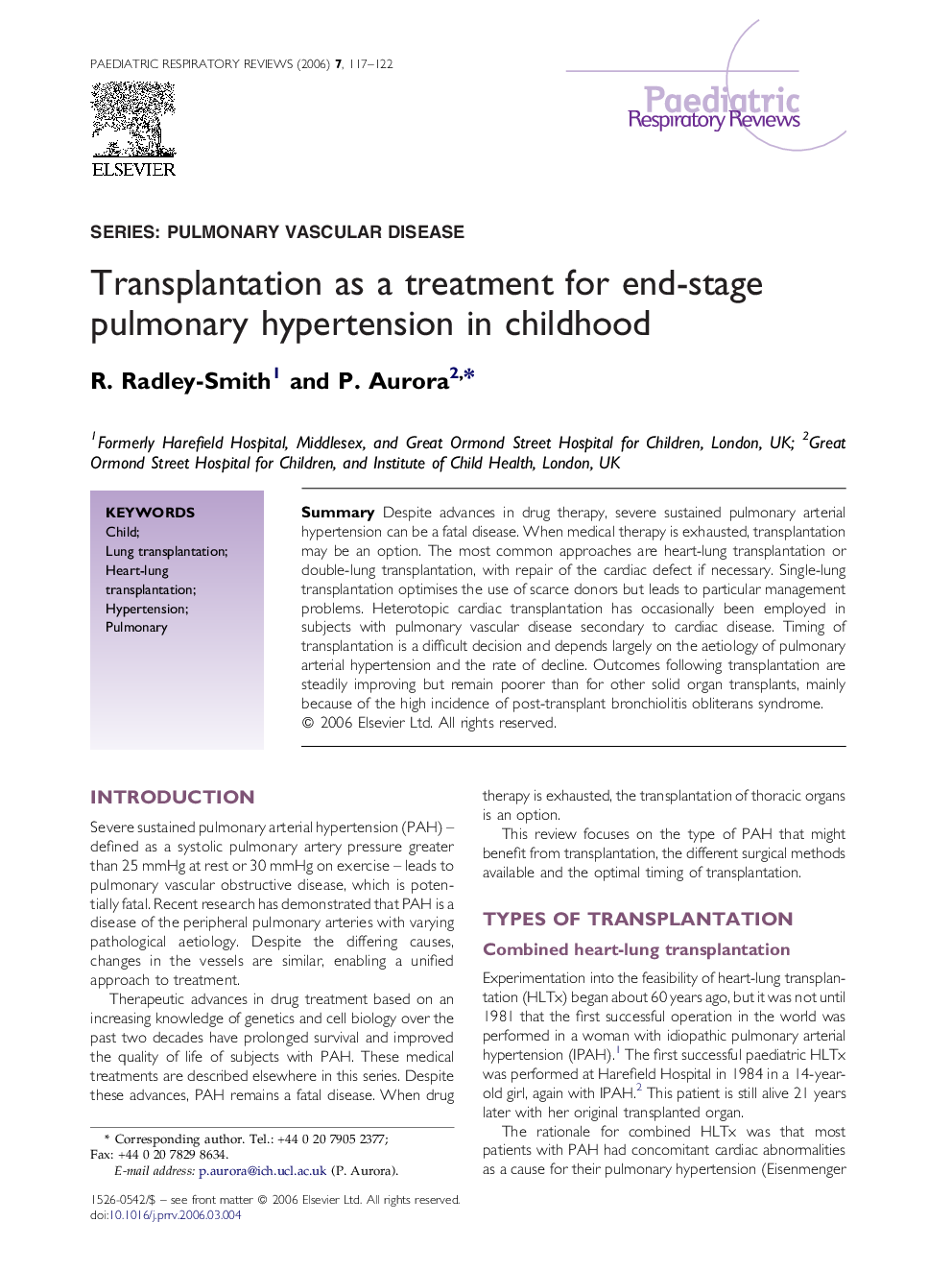| Article ID | Journal | Published Year | Pages | File Type |
|---|---|---|---|---|
| 4171718 | Paediatric Respiratory Reviews | 2006 | 6 Pages |
Abstract
Despite advances in drug therapy, severe sustained pulmonary arterial hypertension can be a fatal disease. When medical therapy is exhausted, transplantation may be an option. The most common approaches are heart-lung transplantation or double-lung transplantation, with repair of the cardiac defect if necessary. Single-lung transplantation optimises the use of scarce donors but leads to particular management problems. Heterotopic cardiac transplantation has occasionally been employed in subjects with pulmonary vascular disease secondary to cardiac disease. Timing of transplantation is a difficult decision and depends largely on the aetiology of pulmonary arterial hypertension and the rate of decline. Outcomes following transplantation are steadily improving but remain poorer than for other solid organ transplants, mainly because of the high incidence of post-transplant bronchiolitis obliterans syndrome.
Related Topics
Health Sciences
Medicine and Dentistry
Perinatology, Pediatrics and Child Health
Authors
R. Radley-Smith, P. Aurora,
